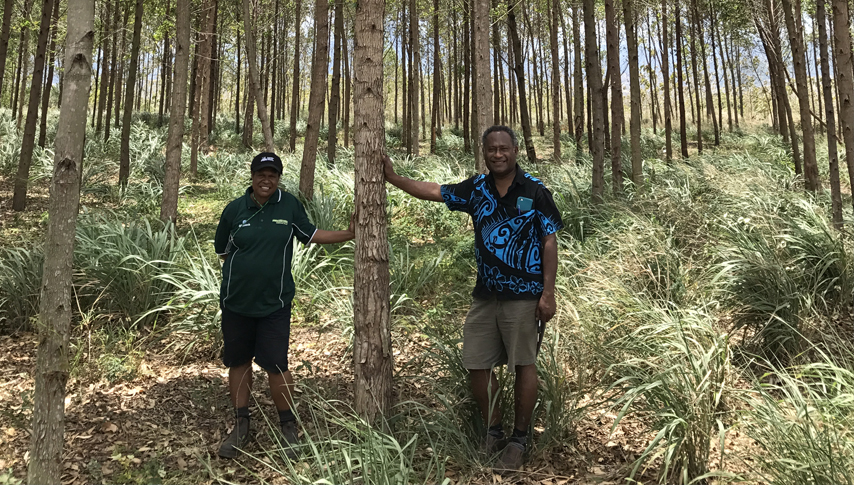- HomeHome
-
About ACIAR
- Our work
- Our people
-
Corporate information
- ACIAR Audit Committee
- Commission for International Agricultural Research
- Policy Advisory Council
- Agency reviews
- Executive remuneration disclosure
- Freedom of information (FOI)
- Gifts and benefits register
- Information publication scheme
- List of new agency files
- Contracts
- Legal services expenditure
- Privacy impact assessment register
- Commonwealth Child Safe Framework
- Benefits to Australia
- Careers
- 40 years of ACIAR
-
What we do
- Programs
- Cross-cutting areas
- Resources
- Where we work
-
Funding
- Research projects
- Fellowships
-
Scholarships
- John Allwright FellowshipScholarships to study in Australia for ACIAR partner country scientists to have Australian postgraduate qualifications
- ACIAR Pacific Agriculture Scholarships and Support and Climate Resilience Program
- Alumni Research Support Facility
- Publications
- News and Outreach
Capacity building
Image

To achieve the ACIAR vision, a world where poverty has been reduced and the livelihoods of many improved through more productive and sustainable agriculture, ACIAR works to ensure that our research programs are developing capability within our partner countries as one of our six objectives that guide our work.
By strengthening the capability of individuals, organisations and systems to perform agricultural research for development, effectively, efficiently and sustainably, we can contribute to this vision. We do this through a parallel approach of, specific activities driven by the Capacity Building Program at ACIAR, and, through the Capacity Building activities integrated into our research-for-development projects and collaborative partnerships.
The ACIAR Capacity Building Program
ACIAR alumni – Once someone has completed an activity in the Capacity Building Program with ACIAR, they are invited to join the ACIAR alumni. Through regular engagement, ACIAR facilitates continued networking and learning opportunities, drawing on the expertise in the alumni to inform research for development projects.
ACIAR Learn – An online learning platform that aims to strengthen the professional development and collaborative connects agricultural researchers. The platform offers a range of courses run all year round to enhance skills related to undertaking and managing research projects and is open to anyone in the ACIAR alumni or individuals on project teams.
Alumni Research Support Facility (ARSF) – Small funding opportunities for our alumni to undertake research to address a specific issue and develop their research project management capability. The current round is due to finish in December 2024.
Crawford Fund – ACIAR contributes core funding to the Crawford Fund and current ACIAR graduates provide secretarial support to the Researchers in Agriculture for International Development (RAID) network. Often ACIAR will nominate alumni and project team members to participate in topic-specific masterclasses when opportunities arise to strengthen technical skills.
John Allwright Fellowship (JAF) - Formal postgraduate training either through a master degree by research or PhD at an Australian university under the Australia Awards program. JAF scholars are selected from ACIAR projects with applications opening annually in March. ACIAR provides additional pastoral care and training for development of leadership skills during their time on scholarship to help bridge the gap between study and the next stages of their career.
John Dillon Fellowship (JDF) – A leadership and management program to support the individual and organisational capability of partner institutions to increase effectiveness of managing research projects.
Meryl Williams Fellowship (MWF) – Targeted to women leaders (both emerging and existing) in agricultural science, this fellowship is designed to increase the leadership skills, confidence, knowledge and capabilities of participants and progress their leadership aspirations. From 2024, ACIAR will be expanding the program to a further 6 cohorts.
Pacific Agricultural Scholarships and Support - Climate Resilience (PASS-CR) - Providing postgraduate scholarships, academic support and career development opportunities to researchers from Pacific Island countries. The program also includes an organisational development component for participating institutions. Applications have just closed for 2024.
Capacity building in research-for-development projects and collaborative partnerships
The strengthened capability of researchers is a legacy of ACIAR projects, contributing to the professional development of many individuals and partner organisations. Capacity building is therefore integrated into the design of every ACIAR project and linked to the realisation of project outcomes and partnerships. Activities aimed at developing capability in projects include mentoring, participation in short courses/workshops, online learning, job placements, formal study, peer-to-peer learning and supporting a learning culture within projects.
To ensure that capability development is integrated into research projects, ACIAR supports project teams when developing projects to:
- assess and understand the operating context and appropriate skills, knowledge and understanding needed to realise the project aims.
- define appropriate activities and audiences.
- align activities to the impact pathway of the project.
- review, reflect and continuously improve approaches.
How can Project Leaders get involved?
As Project Leaders, there are several ways to become involved in capacity-building activities at ACIAR:
- Undertake a course on ACIAR Learn – you can register your interest here.
- Support your project teams to undertake ACIAR Learn courses – check out our current course guide.
- Encourage nominations for our MWF and JDF programs when applications open – subscribe to the ACIAR newsletter or keep an eye out on ACIAR social channels: Facebook, Twitter, LinkedIn and Instagram.
- Supervise a JAF or encourage potential candidates to apply - see the JAF page for the full eligibility criteria.
- Speak to the team on how to strengthen capability development in your projects.
- Connect with our ACIAR alumni through our Country Offices.


